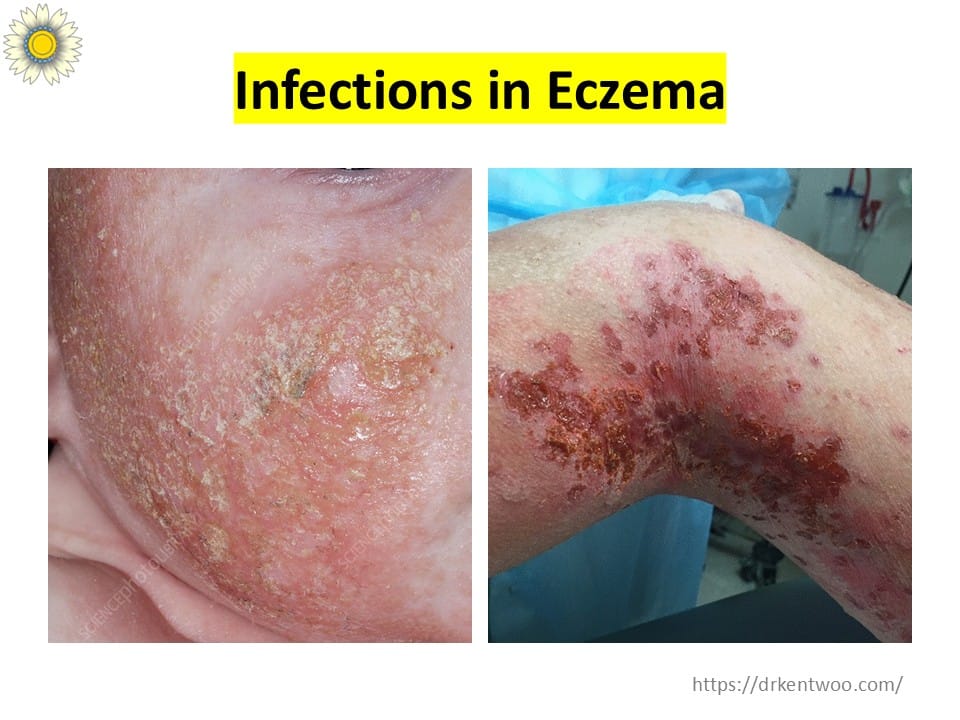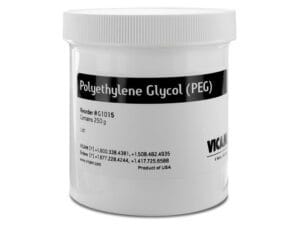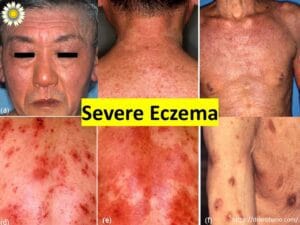The Heartbreak of Eczema: Understanding Infections in Eczema
If you’re dealing with Atopic Dermatitis, you already know the struggles—dryness, itching, cracked skin. But one of the most distressing complications is infections in eczema. Red, oozing, painful patches that just don’t seem to heal—sound familiar?
Let’s dive into why eczema skin gets infected so easily, what you can do about it, and why the right treatment can make all the difference.
Why Is Eczema-Prone Skin So Easily Infected?
Eczema isn’t just dry skin. It’s a chronic inflammatory condition that disrupts the skin barrier. What most people don’t realize is that even skin that looks “normal” in eczema patients isn’t really normal.

Eczema skin is stuck in what’s known as the Th2 allergic immune pathway. This pathway produces chemicals like IL-4 and IL-13, which suppress the skin’s ability to make antimicrobial peptides—your skin’s natural defense system.
👉 Think of antimicrobial peptides as your skin’s own antibiotics. When they’re suppressed, bacteria like Staphylococcus aureus can easily take over—even on skin that looks okay.
Even “Clear” Eczema Skin Hosts Hidden Bacteria

Microscopic analysis shows that normal-looking eczema skin is still colonized by harmful bacteria. These invisible invaders are just waiting for an opportunity—like scratching or sweating—to trigger a full-blown infection.
This is why infections in eczema are not caused by poor hygiene. If you’re a parent or caregiver, please don’t blame yourself.
Signs of Infection in Eczema

Watch for these symptoms:
Oozing or weeping patches
Increased redness, swelling, or warmth
Crusting or yellow discharge
Painful skin, not just itchy
Sudden worsening despite moisturizing
If you notice these, it’s time to see a doctor—early treatment can save a lot of discomfort.
Important Tips for Preventing Infections in Eczema
1. Treat Inflammation to Prevent Infection
🔑 Inflamed skin leads to infection.
Topical anti-inflammatory treatments (like topical steroids or non-steroidal creams) help restore your skin’s ability to defend itself by reducing allergic inflammation.
Many fear that using these creams will weaken the immune system, but the truth is:
✅ When used properly under medical supervision, they’re safe, effective, and crucial.
2. Don’t Delay Medical Treatment
Sometimes, no matter how careful you are, infections still happen.
When you suspect infection, don’t wait—early antibiotics or prescription creams can help stop it in its tracks.
3. Focus on the Skin Barrier
Consistent moisturization is your first line of defense.
Look for fragrance-free, eczema-friendly moisturizers. A damaged skin barrier allows bacteria to enter and multiply—moisturizing seals the cracks.
One moisturizer I often recommend is NatureDr8—a natural, preservative-free moisturizer with a Prebiotic Lipidic Complex. It helps restore the skin microbiome, reducing the risk of harmful bacteria like Staph aureus taking over.
Allergies, Eczema & the “Atopic March”

The word “atopic” literally means allergic. Atopic Dermatitis is often the first sign of allergic disease. Many children with eczema go on to develop food allergies, allergic rhinitis, or asthma.
👉 Curious about the link between eczema and allergy? Learn more about the Atopic March.
When to See an Allergy & Immunology Specialist
If eczema keeps getting infected, it’s not just about skincare.
An Allergist/Immunologist can:
Identify environmental and food triggers
Provide tailored treatment
Offer advanced options like immunotherapy or biologics
📞 Don’t wait for the next flare. Get expert help from the team at our Allergy & Immunology Clinic—we’re here to help your skin heal from the inside out.
Information You Can Use
Infections in eczema are painful—but they’re also preventable and treatable. Understanding the link between inflammation and infection helps you take back control.
Remember:
Don’t be afraid of prescribed creams
Know the signs of infection
Moisturize like your skin depends on it—because it does
Seek help early from a specialist
Healing your skin starts with understanding it.




